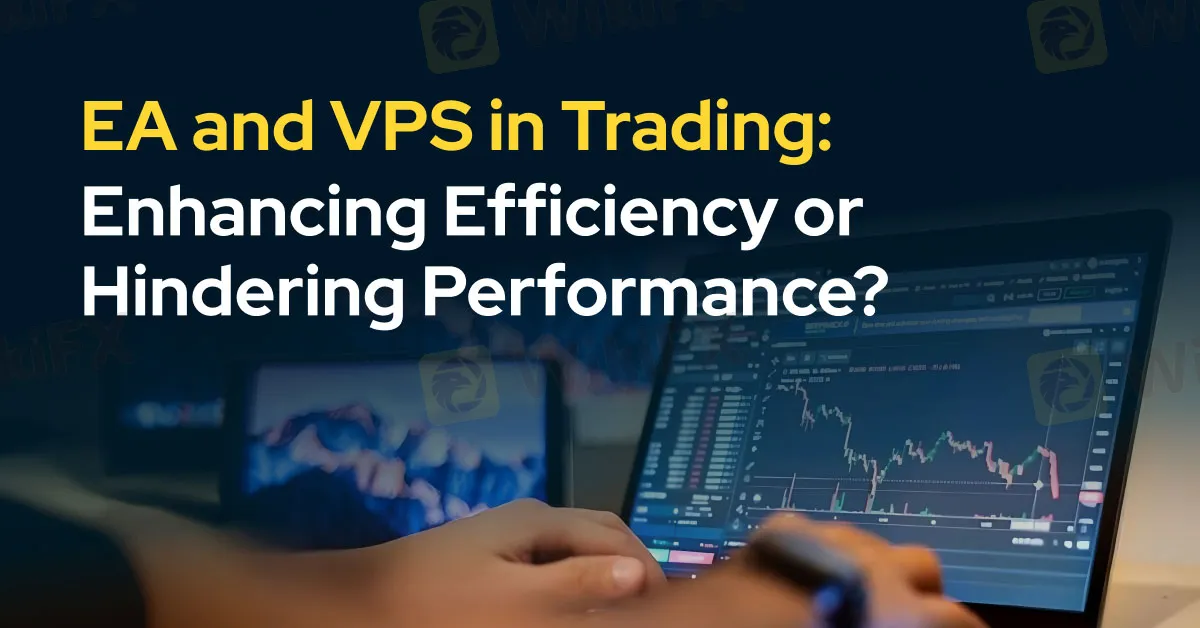简体中文
繁體中文
English
Pусский
日本語
ภาษาไทย
Tiếng Việt
Bahasa Indonesia
Español
हिन्दी
Filippiiniläinen
Français
Deutsch
Português
Türkçe
한국어
العربية
EA and VPS in Trading: Enhancing Efficiency or Hindering Performance?
Abstract:Among the various trading tools available, Expert Advisors (EAs) and Virtual Private Servers (VPS) stand out for their potential to provide significant advantages. However, like all powerful tools, they come with their own set of challenges and risks, making them a double-edged sword for traders.

Among the various trading tools available, Expert Advisors (EAs) and Virtual Private Servers (VPS) stand out for their potential to provide significant advantages. However, like all powerful tools, they come with their own set of challenges and risks, making them a double-edged sword for traders.

Expert Advisors, or EAs, are automated trading systems that execute trades based on predefined criteria. They are designed to remove emotional decision-making and operate with precision and speed, offering several benefits. EAs can analyse market data and execute trades much faster than a human could, potentially capturing opportunities in volatile markets more effectively. By sticking to a set of programmed rules, EAs ensure consistent trading behaviour, avoiding the pitfalls of human emotions like fear and greed. Unlike human traders, EAs can operate around the clock, taking advantage of market opportunities even when the trader is not actively monitoring the market.
Despite these advantages, EAs also present significant risks. EAs can be over-optimized for historical data, a practice known as “curve fitting,” which might not translate well into future market conditions. This can lead to poor performance in live trading. Markets are dynamic and constantly changing. An EA programmed with fixed rules may struggle to adapt to new market conditions, leading to significant losses. Additionally, EAs rely on technology, which means they are susceptible to software bugs, connectivity issues, and other technical failures that can disrupt trading activities.

Virtual Private Servers (VPS) are widely used in trading to secure internet connections and provide reliable access to trading platforms. They offer several benefits. VPS can provide a stable and secure environment for Expert Advisors (EAs) to operate, reducing the risk of downtime due to local internet issues and ensuring consistent execution of trades. By using a VPS located close to the broker's servers, traders can reduce latency, leading to faster trade execution. Additionally, a good VPS can provide a stable and consistent internet connection, crucial for executing trades efficiently and avoiding disruptions.
However, VPS also comes with their drawbacks. Using a VPS involves additional costs, which can eat into trading profits, especially for small-scale traders. Setting up and maintaining a VPS requires technical knowledge, which might be a barrier for some traders. Furthermore, not all VPS providers are equally reliable. Issues such as server downtime or slow performance can lead to missed trades and lost opportunities.
The key to leveraging EAs and VPS effectively lies in understanding their strengths and limitations. Traders should approach EAs with caution, ensuring they are well-tested in various market conditions and remain vigilant about their performance. Regular updates and adjustments to the EA's algorithms can help it adapt to changing market dynamics.
When it comes to VPS, selecting a reputable provider with low latency and high reliability is crucial. Traders should also consider the costs involved and ensure they have the technical skills to set up and maintain the server.
In summary, EAs and VPS can significantly enhance trading efficiency and performance when used wisely. However, they are not without risks. A balanced approach that includes thorough research, regular monitoring, and a keen awareness of the potential pitfalls can help traders harness the benefits of these tools while mitigating their downsides. As with any trading tool, the ultimate responsibility lies with the trader to use them judiciously and in alignment with their overall trading strategy.

Disclaimer:
The views in this article only represent the author's personal views, and do not constitute investment advice on this platform. This platform does not guarantee the accuracy, completeness and timeliness of the information in the article, and will not be liable for any loss caused by the use of or reliance on the information in the article.
Read more

Top 10 Trading Indicators Every Forex Trader Should Know
Master the top 10 Forex trading indicators to analyze real-time Forex quotes, trends, and market signals. Learn strategies to boost accuracy and avoid mistakes.

Geopolitical Events: What They Are & Their Impact?
You've heard many times that geopolitical events have a significant impact on the Forex market. But do you know what geopolitical events are and how they affect the FX market? Let us learn about it today.

Why Do You Feel Scared During Trade Execution?
Trade execution is a pivotal moment for traders. It is when analysis turns into action, and potential profits or losses become reality. However, for many traders, this moment is accompanied by fear. Why does this happen, and how can you address it?

WikiEXPO Global Expert Interview: Simone Martin—— Exploring Financial Regulation Change
In the midst of financial innovation and regulation, WikiGlobal, the organizer of WikiEXPO, stays abreast of industry trends and conducts a series of insightful and distinctive interviews on pivotal topics. We are delighted to have the privilege of inviting Simone Martin for an in-depth conversation this time.
WikiFX Broker
Latest News
Geopolitical Events: What They Are & Their Impact?
Volkswagen agrees deal to avoid Germany plant closures
Top 10 Trading Indicators Every Forex Trader Should Know
TradingView Launches Liquidity Analysis Tool DEX Screener
MultiBank Group Wins Big at Traders Fair Hong Kong 2024
WikiEXPO Global Expert Interview: Simone Martin—— Exploring Financial Regulation Change
'Young investors make investment decisions impulsively to keep up with current trends' FCA Reveals
Why Do You Feel Scared During Trade Execution?
CySEC Settles Compliance Case with Fxview Operator Charlgate Ltd
Malaysian Influencer Detained in Taiwan Over Alleged Role in Fraud Scheme
Currency Calculator


